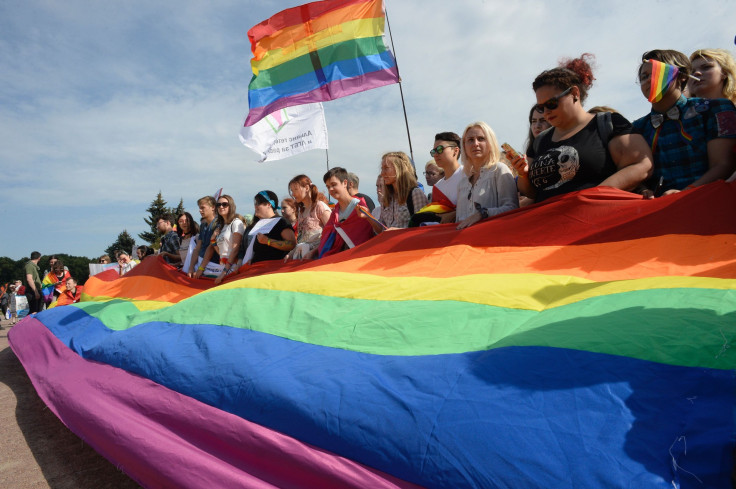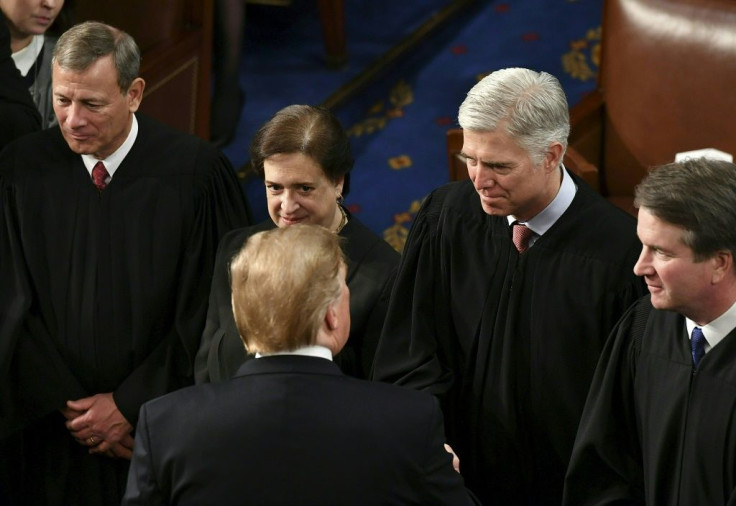US Supreme Court Rules Protection Of LGBTQ Employees In Workplace

KEY POINTS
- U.S. Supreme Court ruled protection of LGBTQ rights in the workplace
- Civil Rights Act 0f 1964, a.k.a Title VII bars any form of discrimination
- Include LGBTQ civil rights
- Ruling decided on 6-3 vote
The U.S. Supreme Court ruled on Monday (June 15) that a federal civil rights law protects LGBTQ workers from discrimination in places of employment.
According to CBS News, the ruling stated that it is illegal for an employer to terminate an employee on the basis of their sexual orientation or gender identity, which is a big win for the LGBTQ community’s battle for civil rights.
The New York Post reported that the usually conservative court decided on a 6-3 vote to extend the scope of the Civil Rights Act of 1964, also known as Title VII, which “bars discrimination on the basis of sex, race, color, national origin and religion” to also include the biases against gay and lesbian employees.
BREAKING: Federal civil rights law protects gay, lesbian and transgender workers, the Supreme Court rules. The landmark ruling will extend protections to millions of workers nationwide and is a defeat for the Trump administration. https://t.co/j6I3k96V9i
— CNN (@CNN) June 15, 2020
The authors of the majority’s opinion, Chief Justice John Roberts and Justice Neil Gorsuch joined the liberal wing of the bench in ruling that “An employer who fires and individual merely for being gay or transgender violates Title VII”.
“An employer who fires an individual for being homosexual or transgender fires that person for traits or actions it would not have questioned in members of a different sex,” Gorsuch wrote in the ruling, Reuters reported. “Sex plays a necessary and undisguisable role in the decision, exactly what Title VII forbids.”
Gorsuch and Roberts were conservatives and four of the court’s liberal justices joined their opinion.
Meanwhile, Conservative Justices Samuel Alito, Clarence Thomas and Brett Kavanaugh expressed their dissent.
Title VII has caused many oral arguments in the justices since its term started in October and during this time, Gorsuch, whom President Trump appointed to the high court in 2017, came out as the “likely swing vote”.
The Trump administration had opposed the LGBT employees in the litigation.
The discrimination of gay and transgender employees in the workplace has remained legal in the majority of the U.S. where 28 states still do not have comprehensive measures against employment discrimination, Reuters reported.
There were three cases involving Title VII before the court and they were the first cases involving LGBT rights to reach the justices since the retirement of Justice Anthony Kennedy in 2018.
One case involved Gerald Bostock, a former county child welfare services coordinator from Georgia, and another case involved New York skydiving instructor, Donald Zarda, who died after litigation began.
The third case was that of a Detroit funeral director, Aimee Stephens, whom the funeral home fired after she revealed that she plans to transition from male to female.
Stephens died in May and her wife Donna is now representing the estate.
Kennedy was behind the majority opinions in all of the major gay rights cases decided by the court.
President Trump replaced Kennedy with Kavanaugh whose appointment shifted the court towards the right wing.

© Copyright IBTimes 2025. All rights reserved.





















